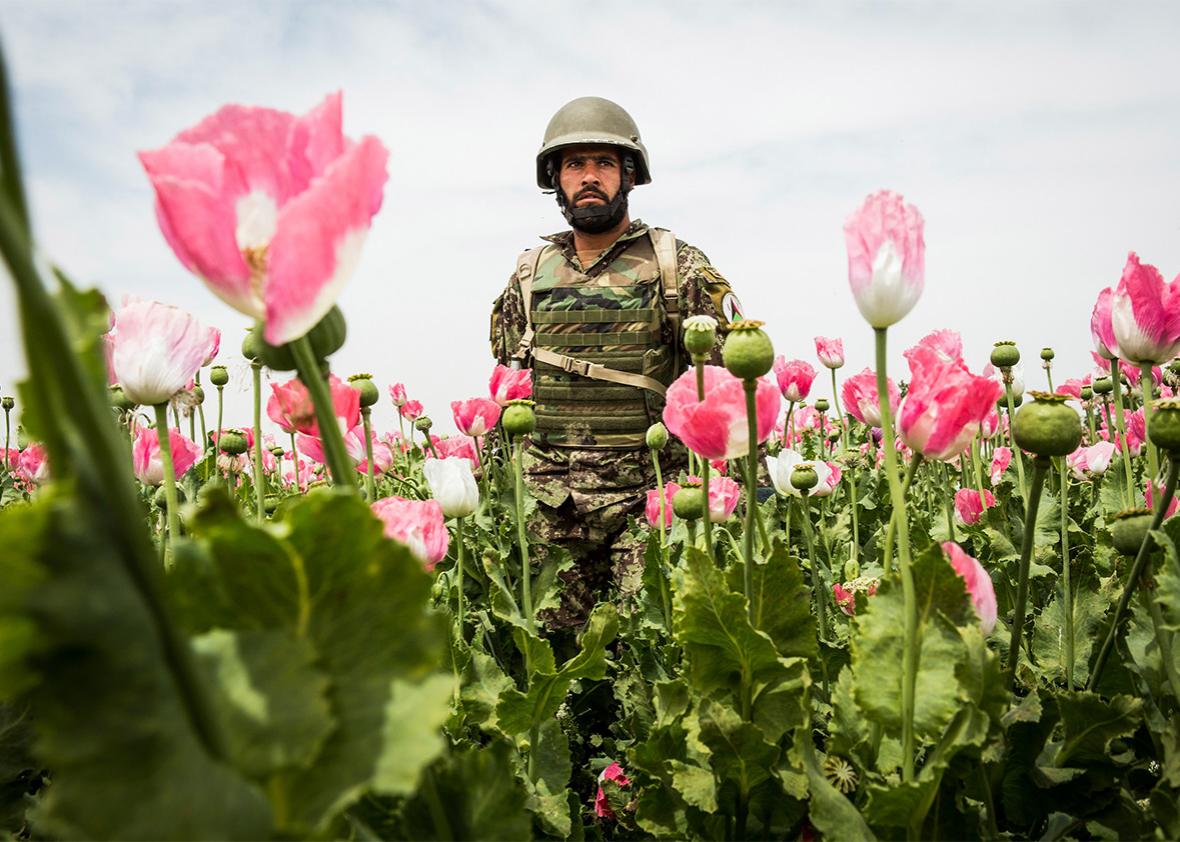Bonjour Slate-ecois,
When it comes to cooking pizza, slamming dunks, and growing wheat, America succeeds. But we’re bad at some things—including rugby, geography, and non-racist criminal justice. Our military succeeds at lots of things, too—our soldiers shoot straight, maneuver with speed and precision, and fly helicopters well. But our military, too, is not perfect. One consequential task it’s been bad at has been training other militaries. If it’s any consolation, that’s a lot tougher than growing wheat.
The U.S. is lousy at training other militaries.
The failings of the Afghan military, which we trained, has been identified as a key reason for why 5,500 American troops will remain in Afghanistan through the end of 2016 and President Obama’s term. Fred Kaplan illuminates why we failed to adequately train Afghan soldiers, and why we’ve failed to do so historically, in Aleppo and Baghdad, and decades ago in Saigon. With everything a national military needs to do and do well on its own, it’s naive to imagine a short, successful exit strategy that relies on a competent, independent military that didn’t exist before we invaded. Maybe we should rethink this whole invading countries thing—unless we can find a way to stabilize war-torn countries by teaching them to cook pizza.
Canada’s new prime minister is a handsome man, but he’s not just a hot piece of venison. He could change the world, too.
Why should you care about the Canadian election? For one thing, the prime minister designate is a fox. For another, the victory of Justin Trudeau’s Liberal Party might mean a greener North America. While Trudeau’s predecessor was a vehement supporter of the Keystone XL pipeline, the new leader’s enthusiasm for it is tepid, he openly opposes other pipelines, and he’s against subsidies for the fossil fuel industry. Trudeau will bring a different Canada to global climate talks in December, and he has vowed to invest in green energy. He’s signaled major changes to Canadian foreign policy, too, including the Great North’s contributions to fighting ISIS, to diplomacy with Israel, and to confronting the Syrian refugee crisis. So sure, Justin Trudeau has flowing brunette locks, but if his hair and jaw don’t do it for you, maybe his foreign policy will.
More wars: Of the star variety, over wine during pregnancy, and over streaming music.
- The new Star Wars trailer is awesome. It hints at plot points from the expanded universe of books and comics, and has great music, too. This movie will make more money than has ever been printed anywhere in the world.
- A glass of wine is probably safe for pregnant women. So why are they being told otherwise?
- Apple music might be a total failure, or it might just be a disappointment.
Do, or do not,
Seth Maxon
Home page editor for nights and weekends
If you like what you see, please encourage a friend, family member, or enemy to sign up for the Today in Slate email newsletter here.
